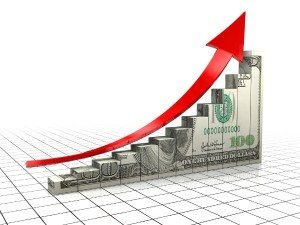In this article, you will learn all about venture capitalists. You’ll also discover what they do and what they invest in. In addition, you will understand the business models that they use. If you’re planning to become a venture capitalist, or are looking for venture capitalists for your start-up, this article can provide some help.
Definition: Venture Capitalist
Venture capitalists are investors who: (1) provide capital to new business ventures, or (2) give support to small businesses that are planning to expand. These investors provide funding for new and/or small businesses because they can reap huge rewards if the latter become successful.
Investors that belong to this type can also suffer from major financial losses, especially when their investments under-perform, or fail to meet projected figures. However, these people are usually wealthy enough to absorb monetary setbacks without “flinching”. They can fund a young company without risking their homes or retirement savings.
The Business Model of Venture Capitalists
Like other investors, a venture capitalist may use any business model that suits his/her situation or personal preferences. However, many venture capitalists use a business model that relies on “power law”.
Basically, this law states that for every ten initial-phase investments, 2-3 investments will generate 100% of the profits. The remaining investments will under perform and produce no revenues.
Venture capitalists accept calculated risks by investing in businesses that have great management teams. Although they typically have a lot of money, these capitalists don’t want to expose themselves to unnecessary or unprofitable risks. This is the reason why venture capital firms invest in <1% of potential deals that they see. Lastly, a capitalist makes disciplined actions and decisions: he/she will only continue investing in a company if it demonstrates great execution and generates consistent returns.
Ideal Businesses for a Venture Capitalist
Venture capitalists look for the following types of business:
- Freemium Businesses – This kind of business attracts customers and investors. It allows customers to use a “watered-down” version of a service or product for free. If the customers like the product/service, they may “upgrade” their account to unlock all of the features of the said market offering.
- Viral Companies– These businesses don’t focus on monetization during their early years. Rather, they concentrate on attracting customers. Once the customers have been hooked, a “viral business” will ask the customers to pay or offer paid advertising to interested companies.
- Recurring Revenue Businesses – These are subscription-based firms. They offer various products and services (e.g. magazines, fitness centers, computer programs, etc.) to customers in exchange for a monthly (or annual) fee.
Notable Venture Capitalists
- Steve Anderson – This capitalist made early investments in a range of different companies, such as Instagram, Stitch Fix, and Machine Zone.
- Chris Sacca – He is one of Twitter’s initial investors. Mr. Sacca was able to return $4,000,000,000 to other capitalists when Twitter went public back in 2013.
- Jim Goetz – He invested in WhatsApp, Nimble Storage, and Palo Alto Networks. He was able to convert a $60,000,000+
investment into $3,000,000,000. This occurred when Facebook bought WhatsApp in 2014.
Trusted & Regulated Stock & CFD Brokers
What we like
- 0% Fees on Stocks
- 5000+ Stocks, ETFs and other Markets
- Accepts Paypal Deposits
Min Deposit
$200
Charge per Trade
Zero Commission on real stocks
64 traders signed up today
Visit Now67% of retail investor accounts lose money when trading CFDs with this provider. You should consider whether you can afford to take the high risk of losing your money.
Available Assets
- Total Number of Stocks & Shares5000+
- US Stocks
- German Stocks
- UK Stocks
- European
- ETF Stocks
- IPO
- Funds
- Bonds
- Options
- Futures
- CFDs
- Crypto
Charge per Trade
- FTSE 100 Zero Commission
- NASDAQ Zero Commission
- DAX Zero Commission
- Facebook Zero Commission
- Alphabet Zero Commission
- Tesla Zero Commission
- Apple Zero Commission
- Microsoft Zero Commission
Deposit Method
- Wire Transfer
- Credit Cards
- Bank Account
- Paypall
- Skrill
- Neteller
What we like
- Sign up today and get $5 free
- Fractals Available
- Paypal Available
Min Deposit
$0
Charge per Trade
$1 to $9 PCM
Visit Now
Investing in financial markets carries risk, you have the potential to lose your total investment.
Available Assets
- Total Number of Shares999
- US Stocks
- German Stocks
- UK Stocks
- European Stocks
- EFTs
- IPOs
- Funds
- Bonds
- Options
- Futures
- CFDs
- Crypto
Charge per Trade
- FTSE 100 $1 - $9 per month
- NASDAQ $1 - $9 per month
- DAX $1 - $9 per month
- Facebook $1 - $9 per month
- Alphabet $1 - $9 per month
- Telsa $1 - $9 per month
- Apple $1 - $9 per month
- Microsoft $1 - $9 per month
Deposit Method
- Wire Transfer
- Credit Cards
- Bank Account



